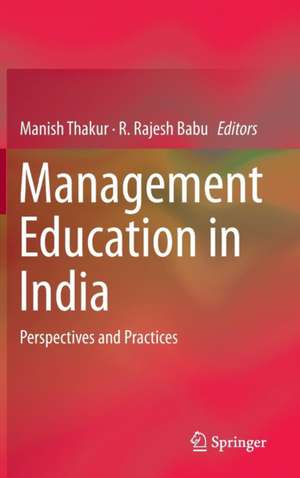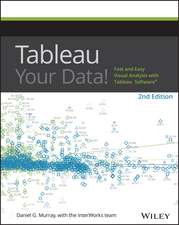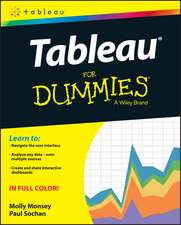Management Education in India: Perspectives and Practices
Editat de Manish Thakur, R. Rajesh Babuen Limba Engleză Hardback – 17 aug 2016
| Toate formatele și edițiile | Preț | Express |
|---|---|---|
| Paperback (1) | 638.11 lei 6-8 săpt. | |
| Springer Nature Singapore – 12 iun 2018 | 638.11 lei 6-8 săpt. | |
| Hardback (1) | 644.30 lei 6-8 săpt. | |
| Springer Nature Singapore – 17 aug 2016 | 644.30 lei 6-8 săpt. |
Preț: 644.30 lei
Preț vechi: 758.01 lei
-15% Nou
Puncte Express: 966
Preț estimativ în valută:
123.30€ • 127.38$ • 102.62£
123.30€ • 127.38$ • 102.62£
Carte tipărită la comandă
Livrare economică 26 martie-09 aprilie
Preluare comenzi: 021 569.72.76
Specificații
ISBN-13: 9789811016950
ISBN-10: 981101695X
Pagini: 284
Ilustrații: XIX, 228 p. 1 illus.
Dimensiuni: 155 x 235 x 16 mm
Greutate: 0.53 kg
Ediția:1st ed. 2017
Editura: Springer Nature Singapore
Colecția Springer
Locul publicării:Singapore, Singapore
ISBN-10: 981101695X
Pagini: 284
Ilustrații: XIX, 228 p. 1 illus.
Dimensiuni: 155 x 235 x 16 mm
Greutate: 0.53 kg
Ediția:1st ed. 2017
Editura: Springer Nature Singapore
Colecția Springer
Locul publicării:Singapore, Singapore
Cuprins
Chapter 1. The State of Management Education in India: Trajectories and Pathways R. Rajesh Babu and Manish Thakur.- PART I: Management Education: Locations and Hierarchies.- Chapter 2. A Postcolonial Critique of Indian’s Management Education Scene Nimruji Jammulamadaka.- Chapter 3. From Management Institution to Business School: An Indian Journey Anup Sinha.- Chapter 4. Management Education in India: Avoiding the Simulacra Effect Abhoy K. Ojha.- PART II: Disciplines in Management.- Chapter 5. Maslow or Mahabharat? Dilemmas in Teaching Organizational Behaviour in management institutes of India Jacob Vakkayil.- Chapter 6. Management of mathematics or mathematics of management: Quantitative methods in management Megha Sharma and Sumanta Basu.- Chapter 7. Teaching economics in a management school: Some personal quandaries Partha Ray.- Chapter 8.Business Can’t Be as Usual: Ethics and Business Bhaskarjit Neog.- Chapter 9. Keeping up with the finishing school myth: The role of communication in contemporary Indian management education Pragyan Rath.- Chapter 10. Law and business: Comparative perspectives R. Rajesh Babu.- Chapter 11. (Invisible) disciplines: Sociology and management Manish Thakur.- Chapter 12. Business history: Travails and Trajectories Rajesh Bhattacharya.
Recenzii
“I believe that Management Education in India is a good introduction to business/management studies in India … this book is important for further studies, not only to analyse the influences of localisation, but also to research the ways dominant discourses remain reproduced in institutions of higher learning in India.” (Maziar Jafary, LSE Review of Books, blogs.lse.ac.uk, January,2018)
Notă biografică
Manish Thakur is Professor at the Public Policy and Management Group of the Indian Institute of Management Calcutta, Kolkata. Previously, he was lecturer in sociology at Goa University (1997-2007) and was a Fellow at the Indian Institute of Advanced Study (IIAS), Shimla (2011-13). His published research deals with aspects of water resources management, rural development knowledge institutions and discourses, research-policy interface, political culture, place of sociology in management education, social movements, intellectual history and indigenous theories. His recent books are Indian Village: A Conceptual History (2014) and The Quest for Indian Sociology (2014).
R. Rajesh Babu is Associate Professor and Group Coordinator of the Public Policy and Management Group of the Indian Institute of Management Calcutta. He is currently the Editor-in-Chief of Decision---the IIM Calcutta flagship journal of management. He obtained his Ph.D. from Jawaharlal Nehru University (JNU), New Delhi. Rajesh has been a global scholar in-residence at the Graduate Institute (IHEID), Geneva in 2011. His published research, research and teaching interests are in international economic law, arbitration and adjudication, corporate liability, constitutional law, property rights, and law and public policy. His recent book is Remedies under the WTO Legal System (Martinus Nijhoff, Boston/Leiden 2012).
R. Rajesh Babu is Associate Professor and Group Coordinator of the Public Policy and Management Group of the Indian Institute of Management Calcutta. He is currently the Editor-in-Chief of Decision---the IIM Calcutta flagship journal of management. He obtained his Ph.D. from Jawaharlal Nehru University (JNU), New Delhi. Rajesh has been a global scholar in-residence at the Graduate Institute (IHEID), Geneva in 2011. His published research, research and teaching interests are in international economic law, arbitration and adjudication, corporate liability, constitutional law, property rights, and law and public policy. His recent book is Remedies under the WTO Legal System (Martinus Nijhoff, Boston/Leiden 2012).
Textul de pe ultima copertă
This volume problematizes different facets of management education in India—pedagogy, curricula, and disciplinary and institutional practices—from the perspective of the Global South. The essays in this volume bring out the institutional challenges of crafting a relevant academic programme that converses with both national specificities and global realities. Coming from diverse academic specializations, the contributors traverse the interface of their respective disciplines with management education. In doing so, they engage with the ongoing global debate on management education. This volume fills a noticeable gap of serious, scholarly reflection on the state of management education. While there have been sporadic reflections and occasional critiques, a critical stocktaking of the institutional and disciplinary aspects of management education has been long wanting. This volume is of interest to scholars and practitioners of management education across the globe, and is likely to generate debate on its contemporary relevance and future trajectory.
Caracteristici
State-of-the-art review of the field of management education in India Contextual engagement with academic and institutional practices Critical and experiential perspectives from the Global South Includes supplementary material: sn.pub/extras












